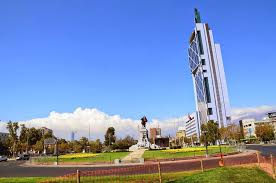What are some key historical events in Santiago?

What are some key historical events in Santiago?
What are some key historical events in Santiago? Santiago has a rich history, shaped by key events that influenced its growth, culture, and identity. Over centuries, the city has been a witness to pivotal moments in Chile’s development.
Santiago’s history is full of dramatic moments, from colonial battles to revolutionary uprisings. Key events influenced its progress, shaping its diverse cultural and political identity.
The Founding of Santiago
On February 12, 1541, Spanish conquistador Pedro de Valdivia founded Santiago at the banks of the Mapocho River. It was strategically placed for trade and defense, setting the foundation for the future capital of Chile.
The Mapuche Resistance
During the 16th and 17th centuries, Santiago experienced constant resistance from the indigenous Mapuche people. The Mapuche were fierce defenders of their land, challenging the Spanish rule through numerous battles and uprisings.
Chile’s War of Independence
From 1810 to 1818, Chile fought for independence from Spain. In Santiago, key battles such as the Battle of Maipú in 1818, led by Bernardo O’Higgins and José de San Martín, secured Chile’s freedom.
The Establishment of the Republic
In 1818, Chile declared itself an independent republic, with Santiago as its capital. This marked a turning point in the nation’s history, as the city became the political, cultural, and economic center of the new republic.
The Revolution of 1891
The Chilean Civil War of 1891 was a key turning point. It arose due to a power struggle between the President and Congress. Santiago witnessed intense battles and political upheaval, altering Chile’s political system.
The 1973 Military Coup
On September 11, 1973, a military coup led by General Augusto Pinochet overthrew the government of President Salvador Allende. This event significantly impacted Santiago and the entire nation, initiating years of military dictatorship.
The Return to Democracy
In 1990, after nearly two decades of dictatorship, Chile transitioned back to democracy. Santiago became the epicenter of political change, hosting protests, movements, and new democratic policies that redefined the nation’s future.
The 2010 Earthquake
On February 27, 2010, Santiago was rocked by an 8.8-magnitude earthquake. This natural disaster devastated much of the city, but also demonstrated Santiago’s resilience, as recovery efforts were swift and widespread.
Protests and Social Movements
In recent years, Santiago has seen significant protests and social movements, most notably in 2019. The protests were sparked by issues like inequality and education, reflecting Santiago’s role in shaping national dialogue.
Santiago’s history is rich with transformative events that have shaped the nation. From the foundational moments in its colonial past to its role in independence and modern political change, the city’s influence endures.
Santiago’s historical journey is full of dramatic shifts that have significantly influenced both the city and the country. These key moments have shaped Santiago into the modern metropolis it is today.
Throughout its existence, Santiago has been at the forefront of significant national events, from its founding as a colonial outpost to its central role in shaping Chile’s political landscape.



Leave a Reply